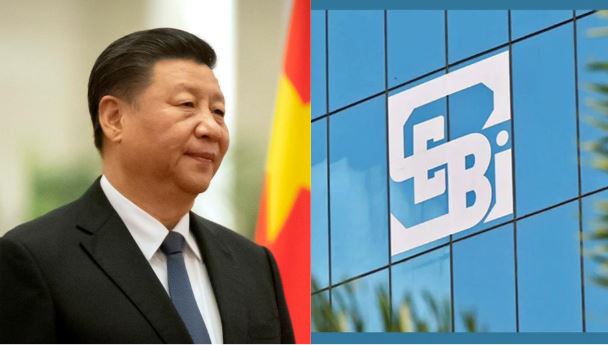The fear of Chinese companies taking over the capital starved foreign companies has hit the governments across the world. After the move by the Chinese public and private companies to buy stake in entities of Europe, Australia, and India, the governments and regulators are waking up and tightening the scrutiny on Chinese investments.
A few days ago, the People’s Bank of China- the Central Bank of the People’s Republic of China, acquired 1.01 per cent stake in India’s top lender, Housing Development Finance Corporation (HDFC).
Now the worried Indian government has decided to increase scrutiny on Chinese investments and therefore, SEBI, the capital market regulator of the country, has asked the custodian banks to disclose the ultimate beneficial owners (UBOs) of Foreign Portfolio Investors based in China and Hong Kong.
SEBI fears that the Chinese investments might be coming from a sovereign, as it is general practice by various governments to allocate funds to investment managers who design investment strategy for them, and in such situations it seems that investment house owns the investment but the real control lies with sovereign- the ruling regime of that country.
Moreover, since there is not very categorical distinction of what is public and what is private in the Communist country of China, even the private investment needs to be scrutinized carefully.
The custodian companies, to whom SEBI has asked for the details of UBOs of investments from China and Hong Kong, maintain data (like address and passport details) of investors owning 10 percent of above in and FPI as investment above this limit is generally categorized as ‘high risk’, especially if UBO is based in not so friendly countries like China or Pakistan.
In the last few weeks, many European countries including Italy, Spain, and Germany tightened their FDI rules to prevent a hostile takeover of their companies by Chinese firms. European Union, the body which sets the general guidelines for FDI rules in Europe by non-EU countries- although it does not have the discretion to change FDI rules- issued new FDI guidelines keeping the damage done by Coronavirus in mind and vulnerable status of European companies, especially those of Italy, Spain, Greece, and Portugal. Investments in critical sectors such as healthcare, Energy, Finance, and defense is practically banned.
The countries around the world are worried about hostile takeover of debt-ridden domestic firms by Chinese giants. Chinese companies, private as well as public, are looking to pump up investments in foreign companies. China already has foreign exchange reserves of more than 3 trillion dollars- equal to the GDP of India for 2019- and the government is flooding the Chinese companies with cheap capital so that they can buy foreign assets. Therefore, Chinese companies have requested investment bankers to crack a deal for investments in major European companies, at a time when Italian and Spanish companies are starving for capital.
Spain, the country with the second-highest number of COVID-19 cases despite such low population, has capped the FDI limit in general companies at 10 percent. Italy has announced new rules for investments in strategic industries and completely shunned the takeover of such companies. Germany, too, has strengthened FDI laws to make foreign takeover harder.
In the last few years, many countries have economically colonized by China. Australia, the country for which China accounts for more than one-third of total trade, would be the best example. Australian PM Scott Morrison already said that he is thinking about the domestic economic sovereignty of the country amid the crisis.
Indian companies are, too, worried about takeover by Chinese firms but some fund managers suggested that this is probably an overreaction in the wake of recent attempts by European countries to ban Chinese investments. “Following the sharp fall in stocks, there is an anxiety among many corporates, the swadeshi lobby, and parts of the government about Indian companies and assets facing takeover threats from Chinese investors – either private or directly or indirectly with support from the Chinese government. Probably, it’s an overreaction. But the paranoia is understandable with advanced countries like Australia and even some of the EU members creating hurdles for Chinese investors,” said a senior fund manager.
SEBI might not ban Chinese investments given the capital starved domestic companies are in desperate need of FPIs, but scrutiny of the investment coming from China and Hong Kong would be increased for sure.
